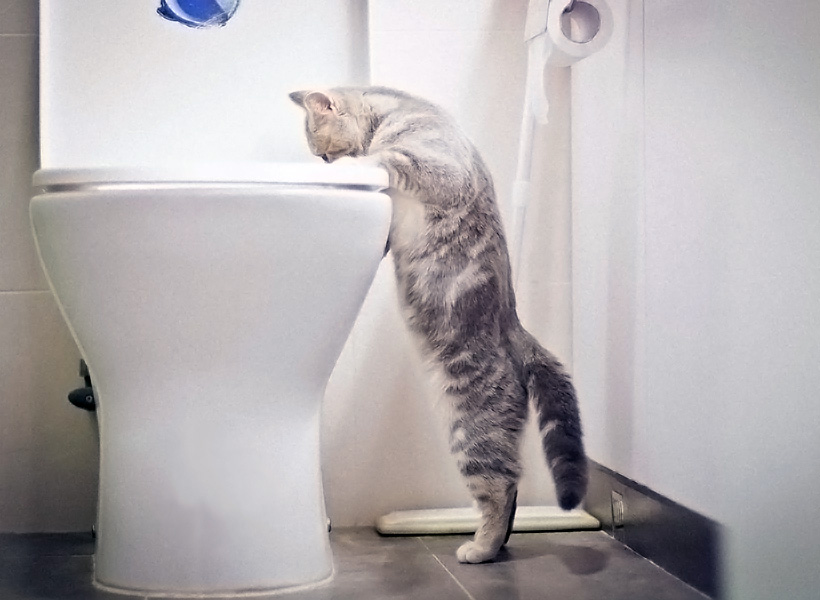Prevent Plumbing Problems: Never Flush Cat Poop Down Your Toilet - Expert Guidance
Prevent Plumbing Problems: Never Flush Cat Poop Down Your Toilet - Expert Guidance
Blog Article
The article below in relation to Can You Flush Cat Poo or Litter Down the Toilet? is especially enlightening. Check it out for your own benefit and decide what you think of it.

Intro
As feline proprietors, it's vital to bear in mind just how we throw away our feline pals' waste. While it may appear convenient to purge cat poop down the commode, this practice can have harmful consequences for both the setting and human wellness.
Alternatives to Flushing
Luckily, there are more secure and much more accountable ways to get rid of feline poop. Think about the complying with options:
1. Scoop and Dispose in Trash
The most typical method of getting rid of pet cat poop is to scoop it into a biodegradable bag and throw it in the garbage. Make certain to make use of a specialized litter inside story and take care of the waste without delay.
2. Usage Biodegradable Litter
Go with naturally degradable cat litter made from products such as corn or wheat. These litters are environmentally friendly and can be safely dealt with in the trash.
3. Hide in the Yard
If you have a lawn, think about burying pet cat waste in an assigned area away from vegetable yards and water sources. Make certain to dig deep sufficient to stop contamination of groundwater.
4. Install a Pet Waste Disposal System
Buy an animal garbage disposal system specifically made for cat waste. These systems make use of enzymes to break down the waste, lowering odor and ecological influence.
Health and wellness Risks
Along with ecological problems, flushing pet cat waste can also position wellness threats to people. Cat feces may contain Toxoplasma gondii, a parasite that can cause toxoplasmosis-- a possibly serious illness, specifically for expecting females and people with weakened immune systems.
Environmental Impact
Purging pet cat poop presents damaging virus and parasites into the water supply, presenting a substantial risk to water environments. These pollutants can negatively impact aquatic life and concession water top quality.
Conclusion
Accountable family pet ownership expands beyond supplying food and sanctuary-- it likewise entails appropriate waste monitoring. By refraining from flushing pet cat poop down the commode and choosing alternative disposal methods, we can reduce our environmental footprint and safeguard human health.
Why You Should Never Flush Cat Poop Down the Toilet
A rose by any other name might smell as sweet, but not all poop is created equal. Toilets, and our sewage systems, are designed for human excrement, not animal waste. It might seem like it couldn’t hurt to toss cat feces into the loo, but it’s not a good idea to flush cat poop in the toilet.
First and foremost, assuming your cat uses a litter box, any waste is going to have litter on it. And even the smallest amount of litter can wreak havoc on plumbing.
Over time, small amounts build up, filling up your septic system. Most litter sold today is clumping; it is made from a type of clay that hardens when it gets wet. Ever tried to scrape old clumps from the bottom of a litter box? You know just how cement-hard it can get!
Now imagine just a small clump of that stuck in your pipes. A simple de-clogger like Drano isn’t going to cut it. And that means it’s going to cost you big time to fix it.
Parasitic Contamination
Believe it or not, your healthy kitty may be harboring a nasty parasite. Only cats excrete Toxoplasma in their feces. Yet it rarely causes serious health issues in the cats that are infected. Most people will be fine too if infected. Only pregnant women and people with compromised immune systems are at risk. (If you’ve ever heard how women who are expecting are excused from litter cleaning duty, Toxoplasma is why.)
But other animals may have a problem if infected with the parasite. And human water treatment systems aren’t designed to handle it. As a result, the systems don’t remove the parasite before discharging wastewater into local waterways. Fish, shellfish, and other marine life — otters in particular — are susceptible to toxoplasma. If exposed, most will end up with brain damage and many will die.
Depending on the species of fish, they may end up on someone’s fish hook and, ultimately on someone’s dinner plate. If that someone has a chronic illness, they’re at risk.
Skip the Toilet Training
We know there are folks out there who like to toilet train their cats. And we give them props, it takes a lot of work. But thanks to the toxoplasma, it’s not a good idea.

As a person who reads about How to Dispose of Cat Poop and Litter Without Plastic Bags, I think sharing that piece of content was worthwhile. Sharing is caring. You never know, you may very well be doing someone a favor. Thanks for your time invested reading it.
Click Here Report this page